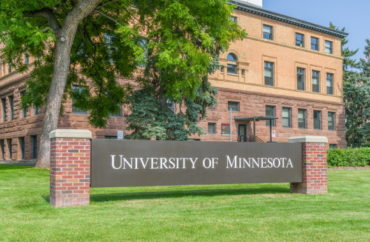
Core Curriculum 2025 committee’s goal is to have new requirements implemented soon
Campus leaders at the University of Minnesota are working to revise the general education program to help shape students into becoming good global citizens.
The curriculum, once approved, would be required of undergraduates starting in the 2025-26 school year, according to the university’s website.
The planning is being conducted by what’s called the Core Curriculum 2025 Committee, made up primarily of faculty, but also students and administrators.
The process began in January 2022, and in March the committee presented its proposal to the campus community.
The proposed curriculum was inspired by the 17 United Nations sustainable development goals, the Minnesota Daily student newspaper reported.
Originally as proposed, students would “take foundation courses in seven categories connected to these goals, according to the proposal,” the Daily reported. “The UN goals are broadly grouped into five overarching elements, which include people, planet, prosperity, peace and partnership.”
UMN student Zeke Jackson, who works as a student voice on the Core Curriculum 2025 Committee, said the group was inspired by the U.N. goals, but is not explicitly drawing from it to develop the curriculum.
“You don’t have to wait until after college to solve real-world issues,” Jackson told The College Fix in a recent telephone interview. “The program hasn’t been updated for decades, and it doesn’t adequately reflect the needs of society.”
The goal of the curriculum is to create a broad knowledge base that is autonomous and emotionally involves students, he said.
“Liberal education is an approach that creates well-rounded citizens with good knowledge and skills,” Jackson said.
While the committee cherry-picked ideas from other institutions, they strived to create an original generalized curriculum.
“What we have is unique,” Jackson said, describing it as something of a holistic approach to education.
The final revised curriculum requirement will be presented this June, according to the university’s website.
The University of Minnesota Twin Cities is the state’s largest public university, enrolling 36,000 undergraduates.
This trend toward producing global citizens has been criticized by some, including the center-right National Association of Scholars.
In 2014, its report “The World Citizen on Campus” argued that progressives have “found in the conceit of teaching students to be ‘citizens of the world’ a new way of fostering a soft disdain for the American civic tradition.”
“That disdain is now disguised as magnanimity: Students are enticed to feel open-hearted, broad-minded, and gently virtuous.”
Asked to weigh in on the topic, Michael Coulter, a professor of political science at Grove City College, said “knowledge is just as important as skills.”
He said it’s one thing to teach students how to be responsible citizens, but more importantly students should be taught the foundations and philosophies of why virtuous actions benefit themselves and society.
“In order to form practical skills, you must understand what it means to be human,” Coulter told The Fix. He emphasized there is an advantage to a more holistic approach, but you must know “the why before the what,” he said.
MORE: ‘Global Citizenship’ Undermines American Values





Please join the conversation about our stories on Facebook, Twitter, Instagram, Reddit, MeWe, Rumble, Gab, Minds and Gettr.